Related Research Articles

The Oxfordian theory of Shakespeare authorship contends that Edward de Vere, 17th Earl of Oxford, wrote the plays and poems of William Shakespeare. While historians and literary scholars overwhelmingly reject alternative authorship candidates, including Oxford, public interest in the Oxfordian theory continues. Since the 1920s, the Oxfordian theory has been the most popular alternative Shakespeare authorship theory.

William Shakespeare was an English playwright, poet and actor. He is widely regarded as the greatest writer in the English language and the world's pre-eminent dramatist. He is often called England's national poet and the "Bard of Avon". His extant works, including collaborations, consist of some 39 plays, 154 sonnets, three long narrative poems, and a few other verses, some of uncertain authorship. His plays have been translated into every major living language and are performed more often than those of any other playwright. He remains arguably the most influential writer in the English language, and his works continue to be studied and reinterpreted.
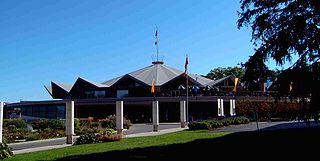
The Stratford Festival is a theatre festival which runs from April to October in the city of Stratford, Ontario, Canada. Founded by local journalist Tom Patterson in 1952, the festival was formerly known as the Stratford Shakespearean Festival, the Shakespeare Festival and the Stratford Shakespeare Festival. The festival was one of the first arts festivals in Canada and continues to be one of its most prominent. It is recognized worldwide for its productions of Shakespearean plays.

Anne Hathaway was the wife of William Shakespeare, an English poet, playwright and actor. They were married in 1582, when Hathaway was 26 years old and Shakespeare was 18. She outlived her husband by seven years. Very little is known about her life beyond a few references in legal documents. Her personality and relationship to Shakespeare have been the subject of much speculation by many historians and writers.
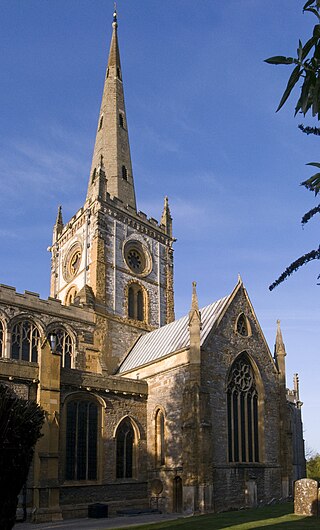
The Collegiate Church of the Holy and Undivided Trinity, Stratford-upon-Avon, is a Grade I listed parish church of the Church of England in Stratford-upon-Avon, Warwickshire, England. It is often known simply as Holy Trinity Church or as Shakespeare's Church, due to its fame as the place of baptism, marriage and burial of William Shakespeare. More than 200,000 tourists visit the church each year.

The Marlovian theory of Shakespeare authorship holds that the Elizabethan poet and playwright Christopher Marlowe was the main author of the poems and plays attributed to William Shakespeare. Further, the theory says Marlowe did not die in Deptford on 30 May 1593, as the historical records state, but that his death was faked.

The Baconian theory of Shakespeare authorship holds that Sir Francis Bacon, philosopher, essayist and scientist, wrote the plays which were publicly attributed to William Shakespeare. Various explanations are offered for this alleged subterfuge, most commonly that Bacon's rise to high office might have been hindered were it to become known that he wrote plays for the public stage. Thus the plays were credited to Shakespeare, who was merely a front to shield the identity of Bacon.

James Wilmot was an English clergyman and scholar from Warwickshire. During his lifetime, he was apparently unknown beyond his immediate circle.

The Shakespeare Birthplace Trust (SBT) is an independent registered educational charity based in Stratford-upon-Avon, Warwickshire, England, that came into existence in 1847 following the purchase of William Shakespeare's birthplace for preservation as a national memorial. It can also lay claim to be the oldest conservation society in Britain. Receiving no government funding or public subsidies, it is totally dependent upon the public for support, and relies on donations and the income generated from visitors.
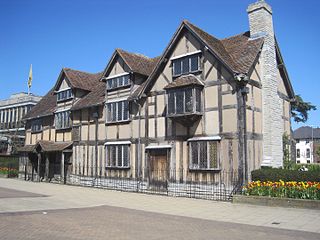
Shakespeare's Birthplace is a restored 16th-century half-timbered house situated in Henley Street, Stratford-upon-Avon, Warwickshire, England, where it is believed that William Shakespeare was born in 1564 and spent his childhood years. It is now a small museum open to the public and a popular visitor attraction, owned and managed by the Shakespeare Birthplace Trust.
The Declaration of Reasonable Doubt is an Internet signing petition which seeks to enlist broad public support for the Shakespeare authorship question to be accepted as a legitimate field of academic inquiry. The petition was presented to William Leahy of Brunel University by the actors Derek Jacobi and Mark Rylance on 8 September 2007 in Chichester, England, after the final matinee of the play I Am Shakespeare on the topic of the bard's identity, featuring Rylance in the title role. As of 23 April 2016, the 400th anniversary of Shakespeare's death and the original self-imposed deadline, the document had been signed by 3,348 people, including 573 self-described current and former academics.

Note: In compliance with the accepted terminology used within the Shakespeare authorship question, this article uses the term "Stratfordian" to refer to the position that William Shakespeare of Stratford-upon-Avon was the primary author of the plays and poems traditionally attributed to him. The term "anti-Stratfordian" is used to refer to the theory that some other author, or authors, wrote the works.
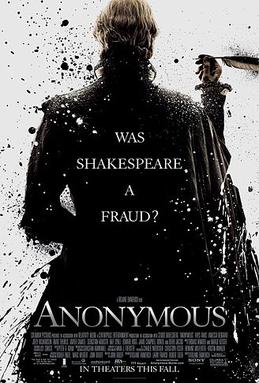
Anonymous is a 2011 period drama film directed by Roland Emmerich and written by John Orloff. The film is a fictionalized version of the life of Edward de Vere, 17th Earl of Oxford, an Elizabethan courtier, playwright, poet and patron of the arts, and suggests he was the actual author of William Shakespeare's plays. It stars Rhys Ifans as de Vere and Vanessa Redgrave as Queen Elizabeth I of England.
American Catholic literature emerged in the early 1900s as its own genre. Catholic literature is not exclusively literature written by Catholic authors or about Catholic things, but rather Catholic literature is "defined [...] by a particular Catholic perspective applied to its subject matter."
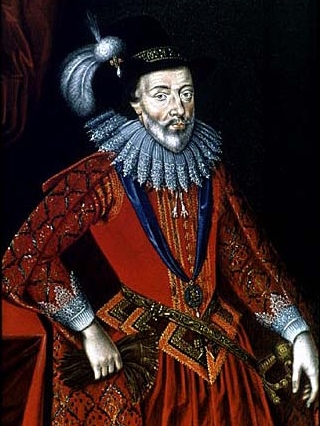
The Derbyite theory of Shakespeare authorship is the view that William Stanley, 6th Earl of Derby (1561–1642), was the true author of the works of William Shakespeare. Derby is one of several individuals who have been claimed by advocates of the Shakespeare authorship question to be the true author of Shakespeare's works.

Sir Edwin Durning-Lawrence, 1st Baronet was a British lawyer and Member of Parliament.

The Shakespeare authorship question is the argument that someone other than William Shakespeare of Stratford-upon-Avon wrote the works attributed to him. Anti-Stratfordians—a collective term for adherents of the various alternative-authorship theories—believe that Shakespeare of Stratford was a front to shield the identity of the real author or authors, who for some reason—usually social rank, state security, or gender—did not want or could not accept public credit. Although the idea has attracted much public interest, all but a few Shakespeare scholars and literary historians consider it a fringe theory, and for the most part acknowledge it only to rebut or disparage the claims.

The Nevillean theory of Shakespeare authorship contends that the English parliamentarian and diplomat Henry Neville (1564–1615) wrote the plays and poems traditionally attributed to William Shakespeare.
References
- The Tales of Henry James by Edward Wagenknecht (New York: Frederick Ungar Publishing Co. 1984) ISBN 0-8044-2957-X
- A Henry James Encyclopedia by Robert L. Gale (New York: Greenwood Press 1989) ISBN 0-313-25846-5